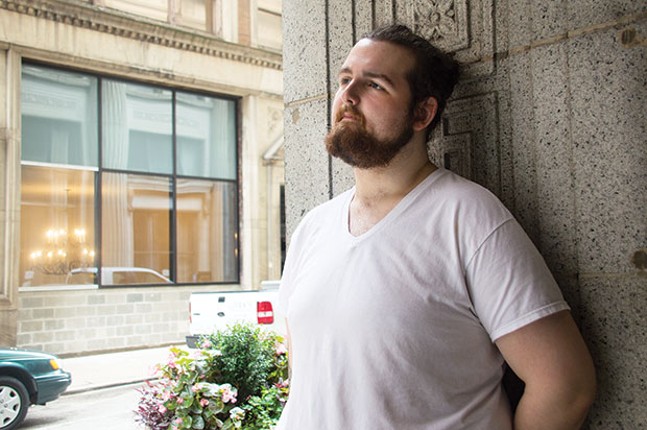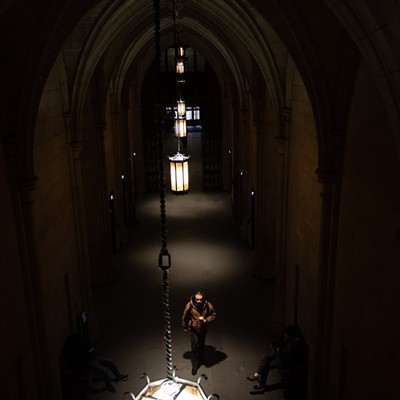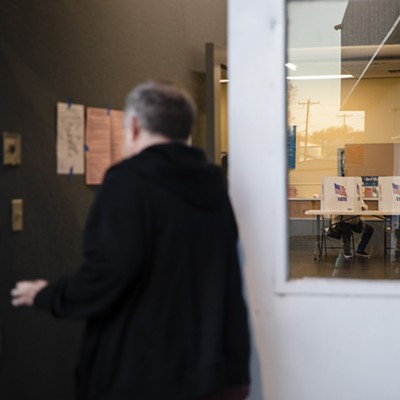The ability to be a full-time artist is very difficult in the current economy. It was even more difficult a few years ago before the Affordable Care Act. Then, abstaining from a “day job” meant footing all the bills for your health care, without the help of a workplace insurance plan. Now, as a result of the ACA, some artists get by with an affordable single-payer option if they’re in good health, while others opt to stay on parental insurance until age 26.
It’s important to remember, however, that not all musicians are without health issues. Musicians with chronic illnesses face a serious and even deadly dilemma if Republicans succeed in repealing the ACA.
Forrest Larson, guitarist of emo outfit Primer & Grayscale, was diagnosed with Type 1 diabetes in 2014. He is a student at Geneva College and works as a security guard at the Carnegie Museum of Natural History and Art. Today he relies on his mother’s insurance to help cover the costs of his medical supplies, including insulin and blood-sugar testing strips.
Without that insurance, Larson’s quality of health will decline, as his access to affordable health care and supplies would become financially prohibitive. If he lost insurance coverage of his insulin, he says he’d be forced to go to a more inexpensive type of insulin from a big-box store; it is based on an older formula and sold over the counter. According to an article published by the Kaiser Health Network in conjunction with NPR, this type of insulin is the only way some patients can get the drug. However, it doesn’t control blood sugar as long as other brands of insulin and administering the wrong dose is a very real problem and can lead to more health problems.
“This is,” Larson explains over email, “of course, the worse-case scenario.”
If the ACA was repealed without a replacement, Larson would lose access to his mother’s insurance. Having increased medical costs would mean he would have to work a lot more on top of his school schedule, leaving very little time for creating his art.
“The less time and money we spend worrying about our medicines that we need, the more we can spend on creating culture and art — true hallmarks of a civilization,” writes Larson. “If we get rid of that, we become culturally dead.”
“In my opinion, I believe that a government’s job is to protect and serve its people,” he continues. “Keeping them healthy should be one of its tenets. Unfortunately, [private] companies are here to make millions of dollars of profit off of people like me who are born [with], or have developed these diseases, without any control, and it makes me sick.”
Merilette is a Pittsburgh art-pop musician who also has chronic ailments. She has been diagnosed with post-traumatic stress disorder, from two separate sexual assaults; borderline personality disorder; anxiety; and depression.
She takes multiple doses of two medicines daily, in addition to attending therapy once a week when her condition is manageable. When things were at their worst, she attended three therapy sessions a week in addition to group therapy. In the past, she’s had in-patient treatment.
“I don’t want to always make art about mental health,” explains Merilette, “But it literally consumes me; it’s constantly present.”
She currently is insured under her father’s plan, as the ACA extended coverage for certain dependents until the age of 28.
“I have no idea what’s going to happen when I reach 28,” says Merilette, although she still has several years until that time comes. “My current treatment is just strong enough to just be the fingers clinging on to the edge of the cliff. I’m not going to be well, maybe ever.”
Without insurance, even the generic medicines she takes would cost around $800 a month. That doesn’t include therapy or visits to doctors to deal with the physical side effects of mental illness.
“The government is supposed to represent us, but that’s not how it actually works,” says Merilette. “The people in power can’t empathize, even sympathize with my experience because they’ve never been through it.”
For Merilette, a repeal of the ACA with no replacement or similar safety net suggests grim consequences. “If I lose my insurance, I’m going to die. That’s the reality.”
Ideally for Merilette and her partner, the two would move to Texas and work for a family friend’s business and focus on creating art. But that would mean her partner would lose his insurance from his current job, since that Texas business doesn’t yet offer health-insurance benefits. And even that would still not provide her with a solution once she ages out of the ACA.
“I want to be a full-time musician, but at this point that means I won’t have insurance,” says Merilette. “I can’t make art if I’m dead.”



















